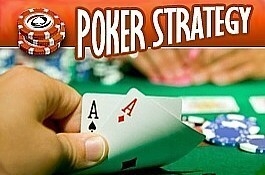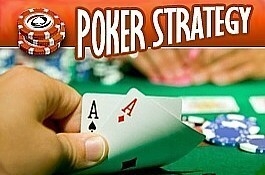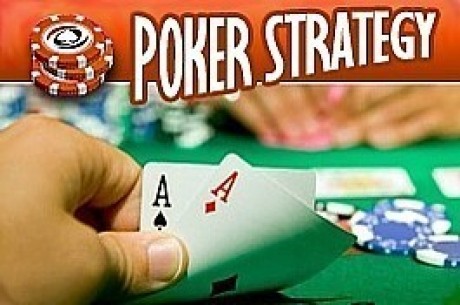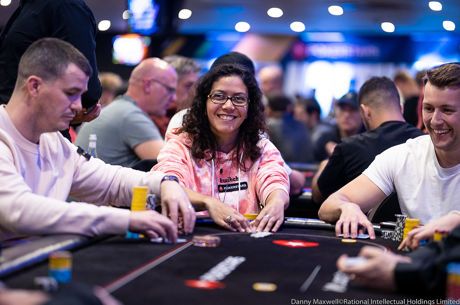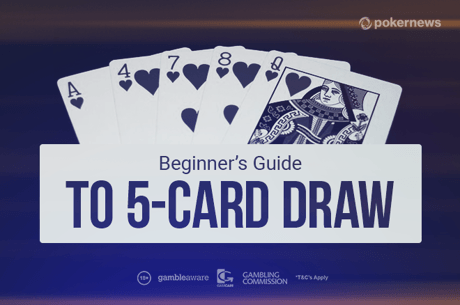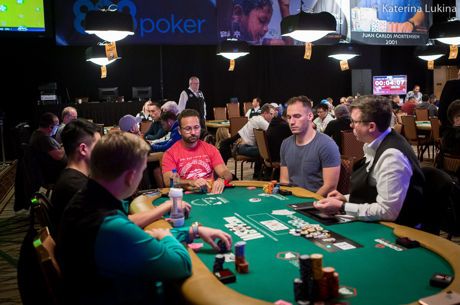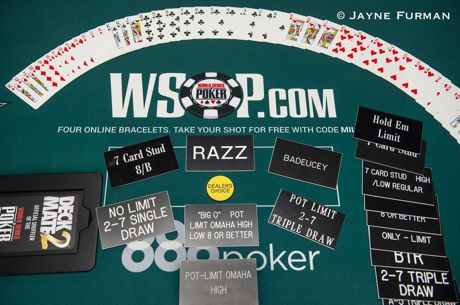Talking HORSE with Lou Krieger, Vol. 11: Razz Hands
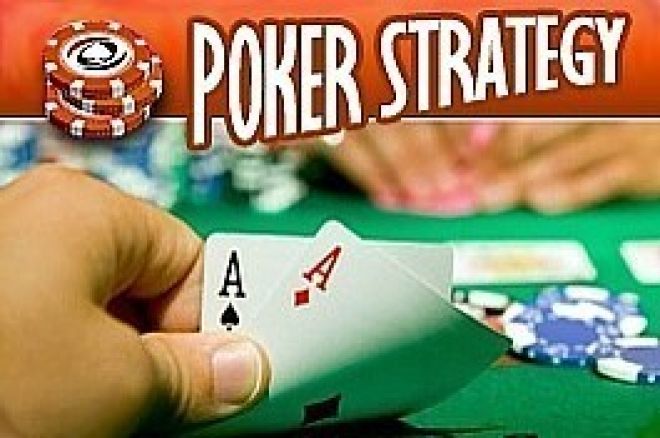
Earlier we discussed some general concepts about razz, and the myriad advantages accruing to poker players who take the time to learn the game. Now it��s time to explore some specific strategic concepts aimed at raising your game.
As with its cousin, seven-card stud played for high, third street and fifth street are critical junctures in razz. Third street is where you make the initial decision about whether to play or fold your three starting cards and forfeit your ante. More about fifth street later in this series.
Also like seven-card stud, one of the critical strategic objectives in razz is deciding whether or not to steal the antes, and an awareness of situations that best lend themselves to ante-stealing.
If you have a low card showing, no one has entered the hand, and none of the players who act after you have a decent-looking exposed card, you should try to steal the antes even if you have big cards hidden in your hand.
If opponents slated to act after you have decent-looking exposed cards, it probably doesn��t pay to attempt a steal unless you have at least one other very good card in the hole. After all, you shouldn��t try to steal all of the time. If you do, your opponents will get wise and play back at you by reraising with their good hands as well as their very best ones.
By reserving your steal attempts for situations where you have at least two good cards �� and one of those babies must be an exposed card �� you have quite a few tactical ploys working for you.
Your raise may steal the antes because all of your opponents fold. You might also be stealing with the best hand. If you are, your steal attempt is not only that, it��s also a bet for value, and betting with the best hand is seldom a bad idea.
Even if you don��t have the best hand, you are representing a very good hand. If you are fortunate enough to catch a good card on fourth street while your opponent catches a bad one, your bet will probably cause him to fold. Looking at your board on fourth street, he��ll see two small cards, coupled with a bet and an earlier raise. You��ve combined your wagering and cards to paint a picture of a player holding four low cards in his hand. In his mind, you��re probably far ahead of him or anyone else with only two good cards, and if your two exposed cards are both better than his two board cards, he��s in an untenable position.
You may have a better hand than your opponent at this juncture, but in reality you��re probably not as far ahead as he thinks. And because you��ve told a consistent story with your betting and your cards, he will fold, and you��ve eliminated any chance that he��ll stick around to draw out on you.
Razz is a game of good boards, and you need to use your board as a club to bludgeon your opponents whenever you have the opportunity.
What��s a good opportunity for ante-stealing when no one else has called and it��s your turn to act?
? You have a two-card low hand with a low card exposed.
? You have a one-card exposed low card, but no one else has called and those players who act after you all have tens, jacks, queens, or kings in the window.
But stealing antes is not the only way to win. You should consider playing any time you begin with three cards to an eight low, which you��ll be dealt about once every six hands. The moment you pick up a potential starting hand, look at your opponent��s board cards and ask yourself these questions:
? How many cards are there that would have improved my hand but are now unavailable to me? Each unavailable card that might otherwise have helped you weakens your hand.
? How many cards could have paired my board, but cannot hurt me now because they are exposed in my opponents�� boards? As the number of duplicate cards to your hand increases, the power of your hand increases too.
A hand drawing to live cards and protected by the fact that potential pairing cards are exposed in opponents�� boards is superior to one that might be a bit lower, but does not have as many live outs and is staring at a deck rich in cards that could pair its board. A hand such as 7-5/A would be favored over 4-2/5 if three duplicate cards are exposed for your hand, but none for your opponent. With two duplicates, you��re about a 53 percent favorite, and with one duplicate, you��re about even money over an opponent who is holding three wheel cards.
The power of immunity to otherwise duplicative cards is quite powerful, and many players won��t be aware of just how much it changes hand values. As a result, they are likely to give you all the action you want with hands that may look better at first glance, but have a tougher go at improving because their potential for duplication is higher than yours. Not only will they give you money, they��ll think you��re a dumb-but-lucky player and give you action when you have the better hand too.
Although an eight low is a good hand, and one that doesn��t come around all that often, it doesn��t mean you should always play it. If you��re in a hand where you have an eight exposed and there��s been a raise and a reraise from players with lower cards showing, your eight low is a candidate for the discard pile. This is even truer if your opponents�� low cards are of a rank that would improve your hand, and exacerbated if you see more cards of that rank in hands that were folded.
Think of an eight low as a pivot point. It��s a hand you��ll probably play, sometimes raise with, and occasionally toss away. It all depends on the action, the nature of the exposed cards and how they relate to the ranks of cards that would improve your hand, and whether the exposed cards mitigate against your hand being paired.
# # #
Lou Krieger is the editor of Poker Player Newspaper. He��s the author of more than 400 articles on poker strategy and 11 books on poker. He can also be heard on the internet radio show, ��Keep Flopping Aces�� which airs Thursday night at 9 p.m. Eastern Time (6 p.m. Pacific) on www.roundersradio.com.

